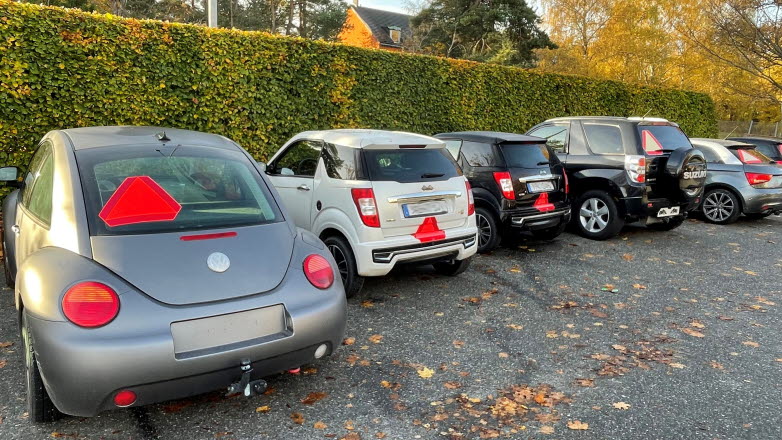"Better training needed for A-tractors and moped cars"

When it comes to the change in traffic regulations the Government recently decided for A-tractors [standard vehicles that have been converted into road tractors], researchers at the Swedish National Road and Transport Research Institute (VTI) and the National Federation for Road Safety (NTF) call them good, but simply not enough. Several aspects of driving license training must also be revised, they suggest in a new report.
The Government's decision in early June to amend the Road Traffic Ordinance will come into force on 31 August. Through the amendments, anyone driving or riding in an A-tractor will have to wear a seat belt, all passengers will have to ride in a seat intended for passengers, and only one person may sit in each such seat.
The changes will also tighten the text stipulating 30 kilometres per hour as the maximum permitted speed.
“We welcome the Government's new legislative changes, which will improve road safety, but it is also very important to improve the training that young people undergo so that they are better prepared and safer when they start driving. Today, they are not required to perform any practice driving in order to get their driving license, so they can begin driving with no experience whatsoever,” says Helena Selander, VTI.
In the report "Young drivers with A-tractor and moped car: education, risk awareness and road safety", researchers at VTI and NTF propose a number of changes to the current AM class education and training for A-tractors and moped cars. The current programme does not include any driving training of a four-wheeled vehicle or a practical driving test, and is completely geared towards standard mopeds. Four-wheeled vehicles are not included in the programme whatsoever.
The report suggests that, in the future, AM class training should focus on risks and safe behaviour in traffic and also be made relevant for A-tractors and moped cars. The training needs to include hands-on practice driving and the license should also be conditional so that it covers either regular mopeds or three- and four-wheeled vehicles.
“Young people need knowledge and opportunities to reflect on risky situations so that they can avoid them. This includes the young drivers themselves, their friends who are passengers, and others they meet on the road. We would like to see the introduction of some form of risk training with practical elements similar to the type that is currently mandatory when getting a driving license for passenger cars,” says Cecilia Friis, project manager at NTF West.
The conclusions of the report are based on a survey of young people who drive moped cars or A-tractors, parents, and driving instructors. The survey results clearly show that the current AM class training – which consists of at least eight hours of theory and four hours of driving a two-wheeled moped – needs to be revamped.
The survey also shows how moped cars and A-tractors are used. The use of seat belts is low among both drivers and passengers, especially in A-tractors, for which seat belt use is not required. It is also common to have more passengers than seats. Performance tuning is common – one out of five A-tractor drivers states that their vehicle has been manipulated to go faster than 30 kilometres per hour.
About the same proportion also say that they have friends who have driven after drinking alcohol or taking drugs.
“We have seen in the study that there are behaviours among young people that are not good from a road safety perspective. At the same time, we understand that A-tractors and moped cars are important for young people's freedom and independence, enabling them to transport themselves to school and leisure activities. But the A-tractor should actually have higher competence requirements with a different license class, higher age limit, and better education and training in order to make it a safer transport alternative,” says Susanne Wallhagen, VTI.
The background to the report – and the proposed changes – is a sharp increase in the number of moped cars and A-tractors in recent years. At the same time, accidents have also increased. At the end of last year, VTI conducted crash tests that showed the great risks involved – even at low speeds – if seat belts are not used.
NTF facts:
The National Federation for Road Safety (NTF) is a non-profit organisation which works for everyone's right to safe and sustainable traffic. The overall goal is Vision Zero – for no one to be killed or seriously injured in traffic. The national activities are conducted in collaboration between ten regional NTF associations and through popular movements, organisations, social institutions, companies and individuals.
Text: Mikael Sönne
Translation: CBG
Link to the report (in Swedish):
Don't miss out on VTI's news – subscribe now!
Stay informed with the latest research and news from VTI. Sign up for newsletters, sent by e-mail four times a year.
Contact
-
Helena Selander
Senior Researcher
helena.selander@vti.se -
Susanne Wallhagen
Analyst
susanne.wallhagen@vti.se

